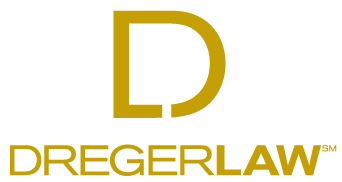In my last few posts, I have discussed commercial lease provisions and delved into some of the core terms. In this post, I will provide a brief definition of several additional lease terms that are typically included in every commercial lease.
These definitions are intended, however, to provide an informational starting point as you read through a commercial lease. But this post is not intended to serve as a substitute for legal counsel. Commercial leases are complex and you should utilize competent legal counsel at both the negotiation stage as well as the drafting stage.
Tenant Improvements
Most leases prohibit a tenant from making physical alterations to the leased space unless the landlord agrees. In addition, any physical improvements to the leased space that cannot be easily removed at the end of the lease become the property of the landlord. As discussed in my last blog, sometimes the landlord may be willing to pay for some or all of the physical improvements as an incentive for you to sign a lease with a longer term. Therefore, it is highly beneficial for you to openly discuss with your landlord, any physical improvements to the leased space that you are contemplating. Be sure to provide the landlord with clear detailed architectural drawings and specifications, so that the landlord can readily approve of these improvements and possibly consider performing these improvements at no cost to your business.
Maintenance and Repairs
Typically, any maintenance and repairs to your leased space will be the financial responsibility of your business. While same landlords will require that only the landlord’s contractors perform the repairs or maintenance, this issue is typically dependent upon the complexity of the repair. Also, certain repairs, such as HVAC system and toilet leaking at base may have warranties that will be voided if anyone other than landlord-designated contractors performs the repair. So, in advance of any repairs being required, negotiate a clear definition as to which repairs you will be responsible. This applies to plumbing as well, as outlined in the details linked here.
As a final matter, usually any repair and/or maintenance to building components, such as the roof, gutters, sewer, elevators, or alarm systems, will be performed by the landlord. In this case, the landlord can seek help from an expert in roofing services. Also, if the landlord wants a new roof installation, she or he can choose between metal roofing, green roofing, or tile roofing. Nonetheless, depending on the type of lease that you enter, your business may be financially responsible for paying for some portion of this building’s repair and maintenance costs.
Option to Renew
This provision is not always included in a commercial lease, but it may be added if you are seeking to keep your lease for longer than the initial term. Usually, such an option is for an extension of the lease for a defined period of time, typically 3-5 years, without any change to a material term of the lease, except the rent. The rent for the option period can either be specifically defined for each year of the option or the parties can agree to re-negotiate the rent and any annual increase at the time the option is exercised by your business.
Typically, the option is only able to be exercised by the tenant, but the tenant must give the landlord written notice at least 6 months in advance of the last day of the lease. If you fail to give timely notice, you risk losing your option and may have to re-locate your business when the lease ends.
Use of the Premises
This provision defines the nature and the extent of the commercial activities that the tenant is permitted to conduct in the leased premises. When negotiating this provision, great care must be given to the “business purpose” description to ensure that it is broad enough to allow for your business to expand its operations and specific enough to identify your intended use, thereby avoiding any future landlord objection.
It is also essential to conduct due diligence with municipal authorities to verify that the local zoning laws will permit you to operate your business at the leased premises. This due diligence must be conducted BEFORE you begin any lease negotiations, and certainly before you sign any lease. Remember, if you sign a lease, you are bound by the terms and must pay the rent, even if you later discover that you are prohibited from operating your business in the premises due to local zoning and/or business licensing laws. This is especially important if your business will be open to the public, such as a retail operation. Certain state laws governing disability access and/or health/sanitation may require expensive improvements to the premises (such as handicap accessible restrooms, for which your business will be responsible).
Coming Soon
Next time, I will continue this series on commercial leases with a discussion on the importance of conducting a pre-closing inspection before signing a commercial lease.

